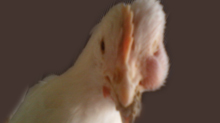Infectious Coryza
- Address
- Neospark Drugs and Chemicals Private Limited Corporate Center,
241, B.L. Bagh, Panjagutta,
Hyderabad- 500 082,
Telangana, India.
- Product Groups
- Poultry
- Large Animal
- Aquaculture
- Feed
© 2025 Neospark Drugs and Chemicals Private Limited
